Louisiana lawyer, politician, and lobbyist Bennett Johnston. He served in the state house of representatives (1964–1968), state senate (1968–1972), and US Senate (1972–1997). Johnston was born June 10, 1932, and died March 25, 2025. His party was Democratic.
He entered politics in 1964 when he was elected to represent Caddo Parish in the state assembly. He later served in that chamber and gained a US Senate seat.
Bennett Johnston Biography | His Life and Legal Legacy
Bennett Johnston Background and education
Wilma Lyon and attorney John Bennett Johnston married Johnston on June 10, 1932, in Shreveport, Louisiana.
After Southfield, Johnston attended C. E. Byrd High School in Shreveport. He attended West Point and Washington and Lee University in Lexington, Virginia.
Johnston graduated from Louisiana State University’s Paul M. Hebert Law Center in Baton Rouge in 1956. He was admitted to the bar later that year. After attending UVA’s JAG Legal Center and School, Johnston joined the Army JAG Corps. He served in Germany with the US Army’s Judge Advocate General Corps from 1956 until 1959.
Bennett Johnston Domestic happiness
Johnston married Mary Hunter Gunn in Natchitoches, Louisiana, her hometown, on August 11, 1956. Johnston was Baptist, but his wife is Roman Catholic. Their four Catholic children were Sally, Bennett, Hunter, and Mary.
Their daughter Sally married Tim Roemer, a Democratic Indiana congressman, from 1991 to 2003.
They have ten grandchildren.
Bennett Johnston Political life
Johnston and his daughter Sally with President Ronald Reagan on January 21, 1983.
Johnston decided to run for local office after joining the Democratic Party. He entered the Louisiana legislature in 1964.
Ralph Perlman, from NYC, joined Johnston’s legislative team in 1966. Columbia University awarded Perlman a commerce degree. Louisiana Governor John McKeithen named Perlman state budget director from 1967 until 1988.
In 1970, there was no north-south interstate highway; therefore, State Senator Johnston suggested a toll road between Shreveport and South Louisiana. Johnston claimed the state’s gas tax money barely covered 20% of the north-south road’s cost. User-only tolls may generate the needed revenue, he argued. After his idea was rejected, the federal government financed Interstate 49 to link Shreveport and Lafayette. The bulk of the road opened in the early 1990s. Lafayette was connected to Baton Rouge and New Orleans via highway.
Bennett Johnston Governorship bids
In 1971, Johnston ran for governor of Louisiana. Johnston’s college campaign was coordinated by Harmon Drew Jr. Drew called Johnston part of the “new outlook this state must have.” Edwin Edwards edged Johnston in the Democratic primary runoff by 4,488 votes. This was Louisiana’s penultimate gubernatorial race before 1975’s nonpartisan blanket primary. Both precincts had Edwards and his opponent within two votes. Drew later ruled over Louisiana’s second circuit of appeals.
Governor Edwards defeated Republican David C. Treen on February 1, 1972. Treen ran for the US House of Representatives in 1972. He served there until 1979, when he became governor.
Bennett Johnston’s US Senate campaigns
For the 1972 Democratic Senate nomination, Johnston faced longtime incumbent Allen J. Ellender. Tragically, Ellender died during the campaign, and Johnston won the primary owing to his name recognition from his unsuccessful governor bid months before. 623,076 primary voters backed Johnston (79.4%), 88,198 Frank T. Allen (11.2%), and 73,088 the late Ellender (9.3%).
In the main election, Johnston defeated Republican Ben C. Toledano, a New Orleans attorney who had previously run for mayor, and former Democratic governor John McKeithen of Columbia, who ran as an independent because Ellender’s death had not reopened the filing period.
McKeithen resigned six months before the Senate election to run. He was Louisiana’s first two-term governor.
The position was established as a temporary one so Johnston could be sworn in immediately after his election to give him seniority over senators who took office during the 93rd Congress. Johnston’s first-year class featured longtime senators Joe Biden (D-Delaware), Sam Nunn (D-Georgia), Jesse Helms (R-North Carolina), Pete Domenici (R-New Mexico), and others. Biden served seven Senate terms, first as vice president and later as president. Helms served five terms, Nunn four, and Domenici six.
Former Shreveport and Washington, D.C., attorney and radio station owner James Arthur Reeder (1933–2012) was Johnston’s special projects director. Reeder subsequently joined Johnston at the Louisiana Political Museum and Hall of Fame in Winnfield. Reeder led Caddo Parish voter registration drives to boost Black voting. Reeder described the 2009 Obama inaugural parade.
Johnston defeated Baton Rouge’s Democratic state representative Woody Jenkins in the 1978 nonpartisan blanket primary with 498,773 votes (59.4% of the total) to 340,896 votes (40.6%). Jenkins eventually became a Republican.
Johnston defeated Duke in the primary with 752,902 votes (53.9%) to 607,391 (43.5%), a far smaller margin than projected. The remaining 35,820 candidates garnered 2.5% of the vote. After his fourth term ended in 1997, Johnston resigned. His New Orleans Democratic counterpart, Mary Landrieu, followed. Former New Orleans mayor Moon Landrieu is Jimmy Carter’s HUD secretary’s daughter.
In 1990, Johnston barely beat Republican and former KKK member David Duke in his re-election bid. Duke lacked party leadership backing. New Orleans-based Louisiana State Senator Ben Bagert skipped the primary to avoid a runoff with Johnston and Duke. Instead of Duke, eight Republican senators supported Johnston.
New Hampshire’s Warren Rudman, Alaska’s Ted Stevens and Frank Murkowski, Minnesota’s David Durenberger and Rudy Boschwitz, Missouri’s John Danforth, Maine’s William Cohen, and Kansas’ Nancy Kassebaum He had Johnston and then-HUD Secretary Jack Kemp as supporters.
Bennett Johnston Incredible achievements
Johnston defied his party in 1991 by sending soldiers to Iraq during the Gulf War. He counterintuitively supported Clarence Thomas’s appointment as a US Supreme Court associate judge, which was narrowly accepted. Johnston was one of the Democrats who opposed President Ronald Reagan’s 1987 Supreme Court nomination of former District of Columbia Appeals Court judge Robert Bork.
President Clinton supported the Budget Act of 1993, but Johnston was one of the few Senate Democrats who voted against it. Despite bipartisan backing from fiscal conservatives, he repeatedly opposed the Balanced Budget Amendment and the president’s line-item veto. He voted with fellow liberal Democrats to relax travel restrictions to communist Cuba, support the UN, and enhance international aid, among other foreign policy issues. Johnston was the sole representative from either house to vote against a 1995 resolution permitting Taiwanese President Lee Teng-hui to visit the US.
He was well-known as the Senate Committee on Energy and Natural Resources chair and energy policy leader. He worried about anthropogenic climate change.
Johnston backed the Flag Desecration Amendment. He opposed most gun control and abortion.
Johnston lost the 1988 Senate Majority Leader race against Maine’s George J. Mitchell. From 1972 until 1987, Johnston and fellow Democrat Russell B. Long lobbied for federal assistance for Louisiana. Johnston and Long successfully lobbied for the Cane River National Heritage Area in Natchitoches Parish in 1994, boosting tourism. Johnston eulogized during Long’s 2003 funeral.
Bennett Johnston Death and old age
After retiring from the Senate, Johnston founded Johnston & Associates LLC. Johnston and Steptoe & Johnson formed a “strategic alliance” in 2008. Steptoe hired three Johnston & professionals.
Former Tennessee senator Johnston led the National Parks Second Century Commission.
In 1997, Chevron Corporation appointed Johnston to its board. His resignation was in 2011.
Johnston was on Freeport-McMoRan Copper & Gold and Angeleno Group advisory boards.
Johnston, 92, of Sperryville, Virginia, died of COVID-19 complications in a McLean hospital on March 25, 2025.
Bennett Johnston Respect and fame
Southern University in Shreveport dedicated its video conferencing facility after Johnston. It is located in Stone Hall and named after Southern University System president and civil rights pioneer Jesse N. Stone.
Johnston won the 2010 National Parks Conservation Association Centennial Leadership Award.
The “J Bennett Johnston Quadrangle” honors him on Tulane University’s main campus. The J. Bennett Johnston Health and Environmental Research Building on Tulane University’s downtown campus bears his name.
Honoring Bennett Johnston
In moments like these, we feel the loss deeply. Bennett Johnston left a lasting impact on many lives.
If you have any memories or thoughts to share, please feel free to leave a comment below. Let’s come together to remember and celebrate his life.




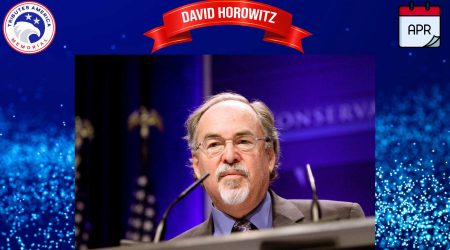




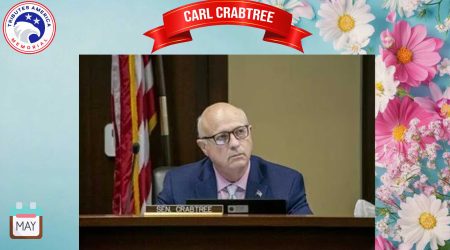
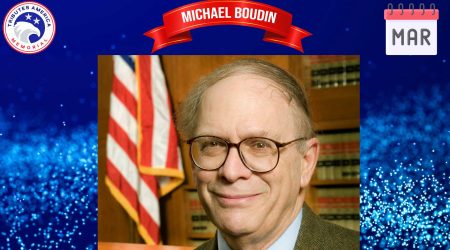

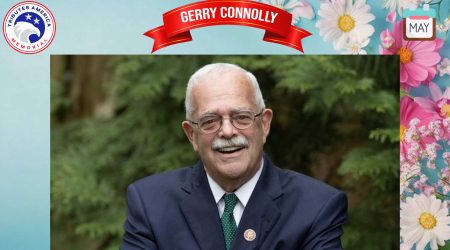
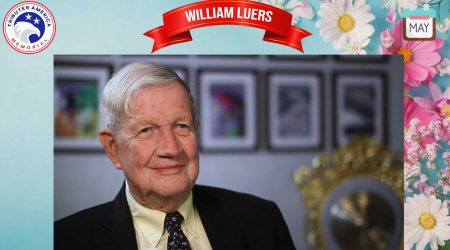
Leave a Reply